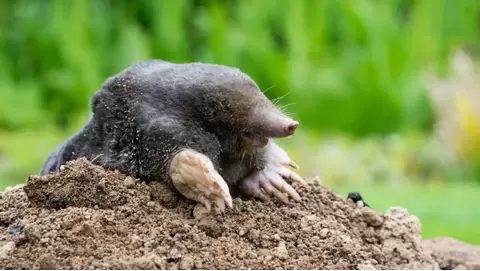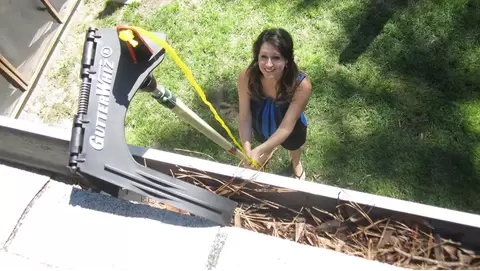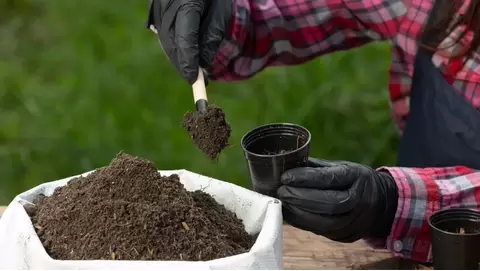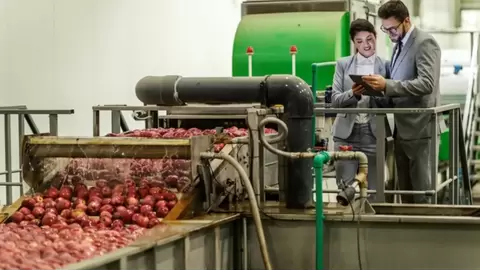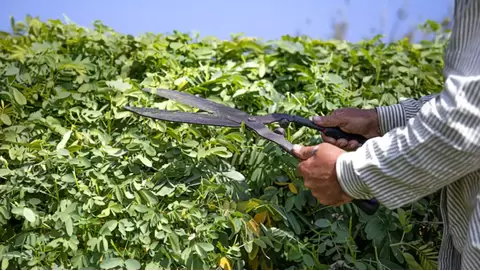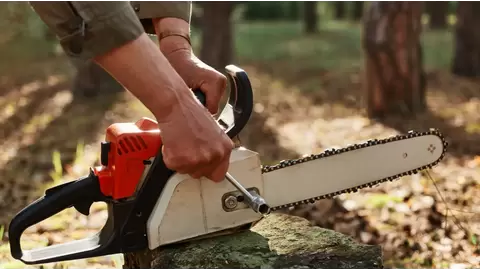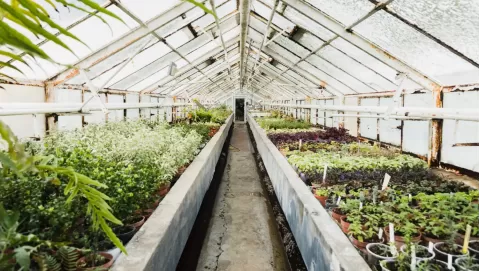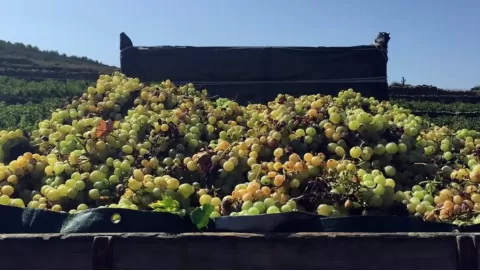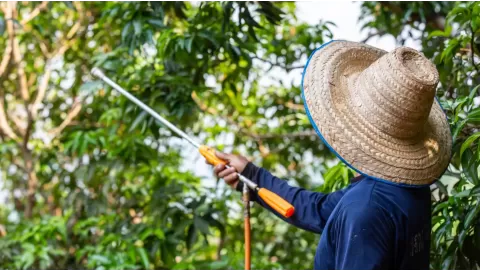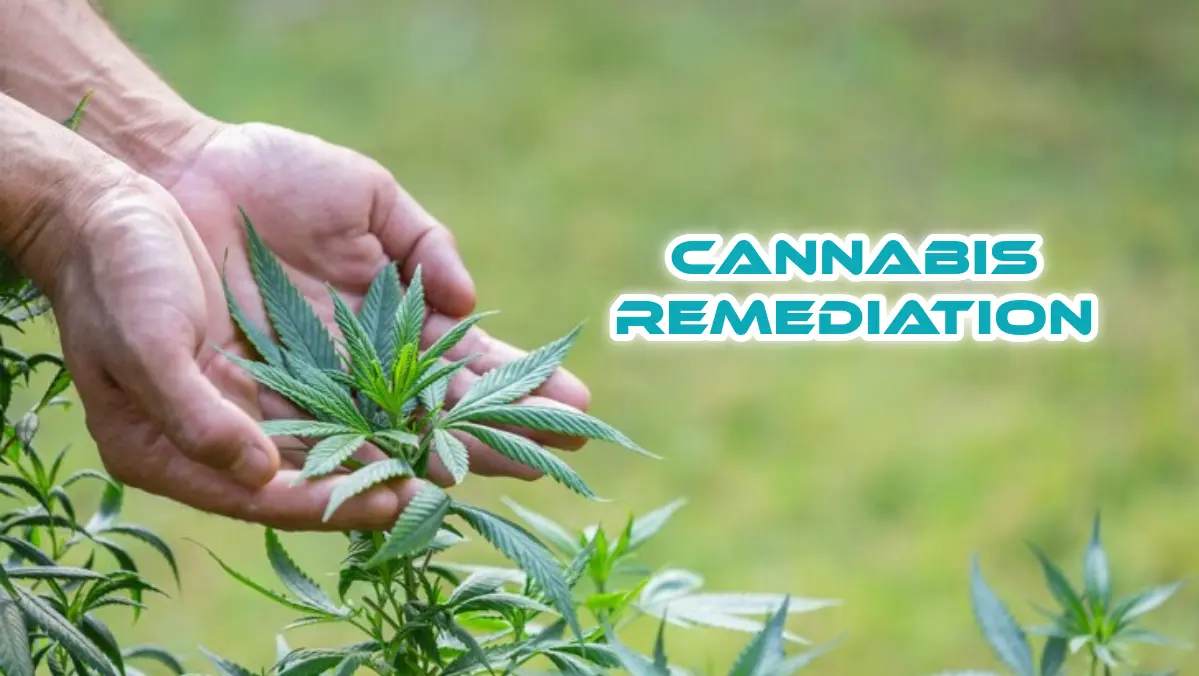
Innovations in Cannabis Remediation Technology
Making sure cannabis products are safe, high-quality, and compliant is of the utmost importance in the cannabis market. Cannabis remediation technology is a set of modern methods and instruments developed to deal with microbiological contamination, odor issues, and regulatory requirements.
In its simplest form, cannabis remediation is any of several technical treatments aimed at improving the purity and overall quality of cannabis products. Ensuring the safety and well-being of cannabis users while keeping industry standards relies heavily on remediation technology, which helps eliminate harmful bacteria and unpleasant odors that may compromise the integrity of the product.
The proliferation of rules and laws affecting the cannabis industry has increased the demand for cannabis remediation technologies. Due to the ever-changing regulatory landscape and strict quality control requirements, companies in the cannabis industry are under constant pressure to ensure their goods are safe and compliant. Willow Industries and Clear The Air are forward-thinking businesses that are filling this need.
Innovative ozone disinfection devices developed for the cannabis business by Willow Industries—Willow Air—are one example. Thanks to these technologies, growers now have a dependable alternative to meet regulatory criteria and reliably supply clean products to consumers. These technologies limit microbial contamination and preserve the plant's therapeutic benefits.
To supplement Willow Industries' efforts, Clear The Air provides natural odor removal products, giving growers powerful tools to deal with smell problems in growing spaces. Keeping with the industry's increasing focus on sustainability and environmental responsibility, Clear The Air's Earth Care solutions use natural minerals to absorb and neutralize odors naturally without using chemicals or scents.
The Evolution of Remediation Techniques
The journey of cannabis remediation techniques spans centuries, reflecting the ever-changing landscape of cultivation practices, scientific advancements, and regulatory requirements. Tracing the origins of remediation technology is vital for comprehending its current status. remediated product
Archaic cultures, including the Egyptians, the Chinese, and the Greeks, all have proof of cannabis's usage, proving that it has been farmed and consumed for millennia. Medicinal and spiritually significant, cannabis was highly esteemed in these prehistoric communities and was used in rituals and cures. Modern agriculture and industrialization brought about profound changes to cannabis cultivation and processing, which in turn created new obstacles to guaranteeing the quality and safety of the final product.

More complex remediation methods were required to deal with problems, including pesticide contamination, microbiological development, and chemical residues when industrial-scale cannabis growing emerged in the 1900s. Specialized techniques, including heat treatment, irradiation, and chemical washes, replaced more conventional procedures like sun curing, air drying, and handwashing. There were several downsides to these methods despite their effectiveness in decreasing pollutants. These included the possibility of harming the plant's THC and terpenes, leaving behind chemical residues, and raising worries about compliance with regulations.
More eco-friendly, invasive-free, and tech-driven cleanup methods have emerged in the last several decades. Companies like Willow Industries, which have led this effort, have developed innovative technologies, such as ozone disinfection systems. A significant step forward in remediation technology, this chemical-free process gives growers a better, safer, and more eco-friendly way to check if their products are safe to use.
The methods used to ensure the safety and quality of cannabis products for consumers will also change as the sector develops further. The history of cannabis remediation, which spans from traditional practices to modern technology, exemplifies the human race's creative spirit, perseverance, and dedication in its search for pure cannabis.
Willow Industries: Pioneering Clean Cannabis Solutions
One of the companies in cannabis remediation, Willow Industries, was founded on the fundamental concept that customers should have access to dependable, clean goods. Their dedication to improving industry standards and guaranteeing client well-being goes beyond just generating a profit.
A game-changer in the fight against microbiological contamination, WillowPure is an ozone disinfection technology developed by Willow Industries that protects the plant's therapeutic qualities. After years of study and research, WillowPure is now here to rescue growers from the nightmare of surface pollutants, expensive recalls, and failed microbiological testing.
Willow Industries is committed to empowering members of the cannabis community through education, culture, and technology. Since there are few options for microbial management resources, the business has also branched out to offer microbial consultation. Willow Industries has a team of microbiologists who work hard to help growers understand and deal with microbial contamination. This allows them to grow better plants and makes their products better.
Willow Air is an example of the company's comprehensive strategy for producing clean cannabis simultaneously. Thanks to Willow Air's innovative air purification technology, which was designed with precision and purpose, growers now have a trustworthy friend in the battle against airborne toxins. The high-efficiency MERV 13 filters and tremendous airflow capacity of Willow Air guarantee a safe and favorable environment for plants to develop and comply, regardless of Aspergillus or other microbes.
With WillowPure's growing popularity in 38 states, along with Canada and Australia, Willow Industries is shaking up the cannabis business with its revolutionary approach to cleanliness, transparency, and trust. More important than financial gain and public acclaim is the prospect of a more robust cannabis ecosystem and the incalculable number of lives that will have been spared as a result. Creating a future where access to clean cannabis is universally recognized, Willow Industries serves as a symbol of optimism and forward-thinking in a quality-driven society.
Microbial Decontamination: The Foundation of Clean Cannabis
The possibility of microbial contamination greatly endangers the quality and security of cannabis products. In addition to destroying the product's integrity, microbes like E. coli and Salmonella, which are particularly dangerous for people with impaired immune systems, can cause significant health problems. Cultivators and processors must employ appropriate decontamination procedures to prevent adverse health consequences caused by microbiological pollutants, ranging from respiratory difficulties to severe illnesses. Implementing rigorous standard operating procedures is essential for effectively addressing microbial contaminants such as powdery mildew in cannabis decontamination processes, ensuring the production of safe and high-quality products.
Chemical washes, irradiation, and heat treatments have long been the go-to procedures for microbial decontamination in the cannabis sector. However, the plant's cannabinoid profile, residual chemical residues, and regulatory issues are some of the downsides that might accompany these methods, even though they may be effective in lowering microbial populations to some level. Therefore, there is a rising need for solutions that are technology-driven, noninvasive, and environmentally friendly to efficiently deal with microbial contamination.
Natural ozone, which consists of three oxygen atoms, has a long history of being known for its potent antibacterial capabilities. Utilizing ozone at precise proportions efficiently eliminates several microbes, such as bacteria, viruses, and fungi, without the presence of detrimental byproducts or degradation of the cannabis product's quality. Growers now have a comprehensive solution to meet regulatory requirements and market requests with this non-thermal, chemical-free method of microbial decontamination. Not only does it ensure product safety, but it also protects the medicinal characteristics of the plant. Using an effective remediation solution is paramount in reducing microbial load and eliminating visual mold from a cannabis product, resulting in a safe and remediated product for consumers.
Growers now have an eco-friendly, effective, and safe way to reduce microbial contamination in their cannabis plants at every stage of the growing and processing process. They feel easy knowing their products are safe. New technology, such as ozone disinfection systems, will be crucial in determining how clean cannabis is grown in the future.
Clear The Air: Innovative Solutions for Odor Management
When it comes to reducing pollution and unpleasant odors, Clear The Air is one of the sustainable and innovative companies. Its foundation is Earth Care, an innovative odor remover made from a natural mineral. Earth Care's innovative approach eliminates odors entirely without leaving any harmful residues or pollutants, in contrast to traditional products that only cover unpleasant smells with artificial perfumes.
In particular, Earth Care stands out due to its adaptability and security. Thanks to its all-natural composition, it won't harm kids or dogs, giving parents and business owners a break. When it comes to keeping things fresh and clean, Earth Care is a trustworthy companion, whether you're dealing with the aftereffects of a pet accident or the strong smell of a skunk encounter.
Unlike competing products, Earth Care absorbs scents instead of just masking them. It is a natural odor neutralizer that works by drawing in scents from the air and attracting them, much like a magnet. In addition to improving the air quality inside, this method guarantees a more complete and long-lasting odor removal.
Whatever your odor problem, no matter how big or small, the Earth Care product line has you covered. Because of its small size and odor-neutralizing solid properties, the Odor Eliminator Bag is perfect for sanitizing specific places like trash rooms, pet cages, or closets. Alternatively, for more extensive areas like homes, businesses, or commercial buildings, the Large Economy Size Bucket of Odor Remover Granules is an excellent choice due to its vast coverage.
Earth Care's major selling point is its environmental Friendliness. Biodegradable and non-toxic in construction, it provides an eco-friendly substitute for conventional odor control solutions that frequently employ dangerous chemicals. You can easily dispose of the granules in the garbage or add them to the soil to improve the nitrogen content.
The Earth Care solutions by Clear The Air represent a new way of thinking about odor removal; they're safe, effective, and kind to the earth.
Beyond Microbes: Addressing Odor Control
One crucial but frequently disregarded part of the complex cannabis production and processing environment is odor control. Microbiological contamination is a real concern for product quality and consumer safety. Still, the problem of bad smells can have just as negative an impact on a grower's credibility and ability to comply with regulations. Understanding the importance of odor control is vital to growing clean, safe, and socially responsible cannabis.
Several factors, such as plant metabolism, organic matter breakdown, and volatile chemical compounds generated during processing, might contribute to the unpleasant aromas found in cannabis facilities. These aromas impact both the consumer's sensory experience and community relations, particularly in heavily populated areas where complaints about odor nuisance are prevalent. Furthermore, preventative actions are required to lessen odor impacts and keep operations in conformity with the strict standards controlling odor emissions.
In this regard, Earth Care products and other all-natural odor eliminators provide a solid alternative to conventional odor-masking methods. Earth Care's revolutionary composition uses natural minerals to effectively absorb and eliminate malodorous substances, unlike chemical-based air fresheners that cover off odors. Physically attaching odor molecules to the surface of a mineral makes them inert and makes the process known as adsorption.
Sodium aluminosilicate is a naturally occurring mineral with exceptional absorption capabilities; the granules, when released into the air or sprinkled on surfaces, capture odor molecules by attracting and retaining them through electrostatic forces, much like tiny sponges. This causes the stench to fade bit by bit until the molecules causing the problem are entirely removed. They are a must-have for growers who want to improve product quality, comply with regulations, and build good relationships in the community because of how versatile and easy they are to use.
So, odor management is an intricate problem that calls for a comprehensive approach based on research, new ideas, and environmental care. To tackle odor issues and build a reputation for cleanliness, responsibility, and honesty in the business and beyond, cannabis growers can use natural odor removal solutions.
Pros and Cons of Using Cannabis Remediation Machines
Introducing remediation machines has generated interest and discussion among those involved in the dynamic cannabis production and processing business.
These advanced devices have the potential to completely transform our strategies for microbiological decontamination and product quality control. It's essential to weigh the benefits and drawbacks of these technological innovations.
Here are some advantages:
- Enhanced product quality: The capacity of cannabis remediation machines to efficiently eliminate microbiological contaminants greatly enhances product quality, which is one of the main advantages of these machines. These devices can destroy dangerous germs without damaging the plant using modern technology like ozone disinfection systems and UV light therapy.
- Enhanced efficiency: Conventional approaches to microbial decontamination frequently necessitate labor-intensive procedures and human involvement. On the other hand, remediation machines provide an automated and simplified option, enabling growers to get consistent outcomes with little to no effort. In addition to saving time and effort, this enhanced efficiency lessens the likelihood of contamination and human error.
- Regulatory compliance: Cannabis growers are under intense pressure to ensure their products are safe and up to code because of the industry's strict microbiological testing and product safety requirements. Remediation machines offer a preventative method of compliance by eliminating potential sources of microbiological contamination before they lead to expensive recalls or regulatory infractions. This proactive approach can protect the health of consumers and the reputation of businesses.
- Versatility: Another significant advantage of cannabis cleanup equipment is its adaptability to handle various microbiological pollutants and processing issues. These machines provide customizable solutions adapted to the individual demands of each crop and product, whether it's surface cleaning, air purification, or water treatment.
Some disadvantages include:
- Cost considerations: Though there's no denying the benefits of cannabis remediation machines, the initial expenditure can be expensive. Startups or small-scale cultivators with limited funding resources may need help to afford the initial cost of purchasing and installing these devices and the ongoing maintenance and operational requirements.
- Complexity and training: To operate remediation equipment safely and optimally, one needs specialist knowledge. Cultivators need to put effort and money into training employees or bringing in skilled experts to learn how machines work and how to do maintenance correctly. This added complexity might overwhelm companies with sufficient technological knowledge or inexperienced growers.
- Risk of overprocessing: A possible downside of remediation machines is the possibility of overprocessing, in which the cannabis product's quality or potency is diminished due to excessive exposure to remediation processes. Cannabinoids and terpenes, for instance, could undergo unwanted changes in chemical composition due to extended exposure to ozone, which could impact their therapeutic benefits, scent, or taste. Finding the spot between thorough cleaning and keeping the goods fresh is the key to reducing this risk.
- Environmental impact: Certain remediation methods, such as ozone disinfection systems, might affect the environment because they use a lot of energy or produce dangerous waste. Environmental hazards may also result from irresponsible wastewater disposal or the release of leftover toxins during remediation. Farmers need to consider the ecological effects of remediation devices and to maintain sustainable practices and their potential benefits.
So, cannabis remediation machines have the potential to improve product quality, guarantee compliance with regulations, and streamline operations. However, they also come with their fair share of problems, which must be carefully considered and overcome. Cultivators may make the most of remediation technology to grow safer, cleaner, and more resilient cannabis by considering the benefits and drawbacks and applying best practices in machine operation and maintenance.
Emerging Trends and Future Directions
The methodology and technology used for cannabis remediation are constantly developing in parallel with the cannabis industry. Researchers and growers are looking at new ways to eliminate odors and decontaminate microbes because of the rising importance of product safety, quality, and regulatory compliance. By seeing emerging trends and forecasting the future of cannabis remediation technology, stakeholders can foresee the industry's changing demands and seize new progress opportunities.
Sustainable and ecologically friendly approaches are becoming more common in cannabis remediation technology. Cultivators are looking for more environmentally friendly alternatives to conventional remediation methods due to growing concerns about energy usage, trash generation, and ecological impact. Sustainability is shaping the future of cannabis remediation, as seen in the rise of biodegradable packing materials and the adoption of eco-friendly cultivating practices.

Another new development is using AI and sophisticated data analytics in repair procedures. By leveraging big data and machine learning algorithms, cultivators can forecast microbial outbreaks with remarkable precision, optimize remediation methods, and detect possible contamination hotspots. This data-driven strategy can improve effectiveness, efficiency, proactive risk management, and compliance with regulations.
With further advancements and innovations, the future of cannabis remediation technology seems bright. New remediation strategies that target specific microbial strains or contaminants will be developed, allowing for more accurate and focused interventions. This is one forecast in the field. The potential for customized remediation treatments is limitless, ranging from genetically modified bacteria with antimicrobial characteristics to biocompatible nanomaterials for surface decontamination.
Developments in nanotechnology and materials science are also anticipated to significantly change the use of odor-control agents in cannabis production and processing. Researchers are working to develop next-generation odor removal technologies that are not only highly effective but also sustainable and eco-friendly. These innovations may cause a massive change in how the cannabis industry handles odors and other related fields.
The Bottom Line
Recent developments in cannabis remediation technology can potentially revolutionize the industry by addressing long-standing issues with product quality, safety, and regulatory compliance. The remediation industry's dedication to sustainability and scientific developments is reflected in creating solutions for microbial decontamination and odor control, among others.
The evolution of cannabis remediation from traditional cultivation methods to modern technological innovations exemplifies the industry's strength and flexibility in meeting changing consumer needs and government regulations. Some companies in this transformation are Clear The Air and Willow Industries, which are developing innovative clean cannabis solutions focusing on customer safety and environmental consciousness.
Modern innovations in product development have given cannabis farmers new, environmentally friendly options for disinfecting their crops, such as the WillowPure ozone disinfection systems and the Earth Care natural odor eliminators. In addition to raising product standards, these innovations help businesses comply with regulations and promote honesty and openness among workers.
Emerging trends and ongoing research are creating the way for continued innovation and advancement in cannabis remediation technology, which has enormous promise for the future. Additional progress in microbial decontamination and odor control is anticipated to be driven by sustainable practices, data-driven techniques, and synergistic solutions, ultimately improving the quality and safety of cannabis products.
As the cannabis industry continues to evolve and mature, stakeholders must remain vigilant, adaptable, and forward-thinking in their approach to remediation technology. By embracing emerging trends, investing in research and development, and prioritizing consumer safety and environmental stewardship, the industry can continue to thrive and innovate in the years to come, ensuring a brighter and cleaner future for cannabis cultivation and processing.
Disclaimer: This material is for informational purposes only and should not be relied on for legal, medical, financial, or other professional advice.



